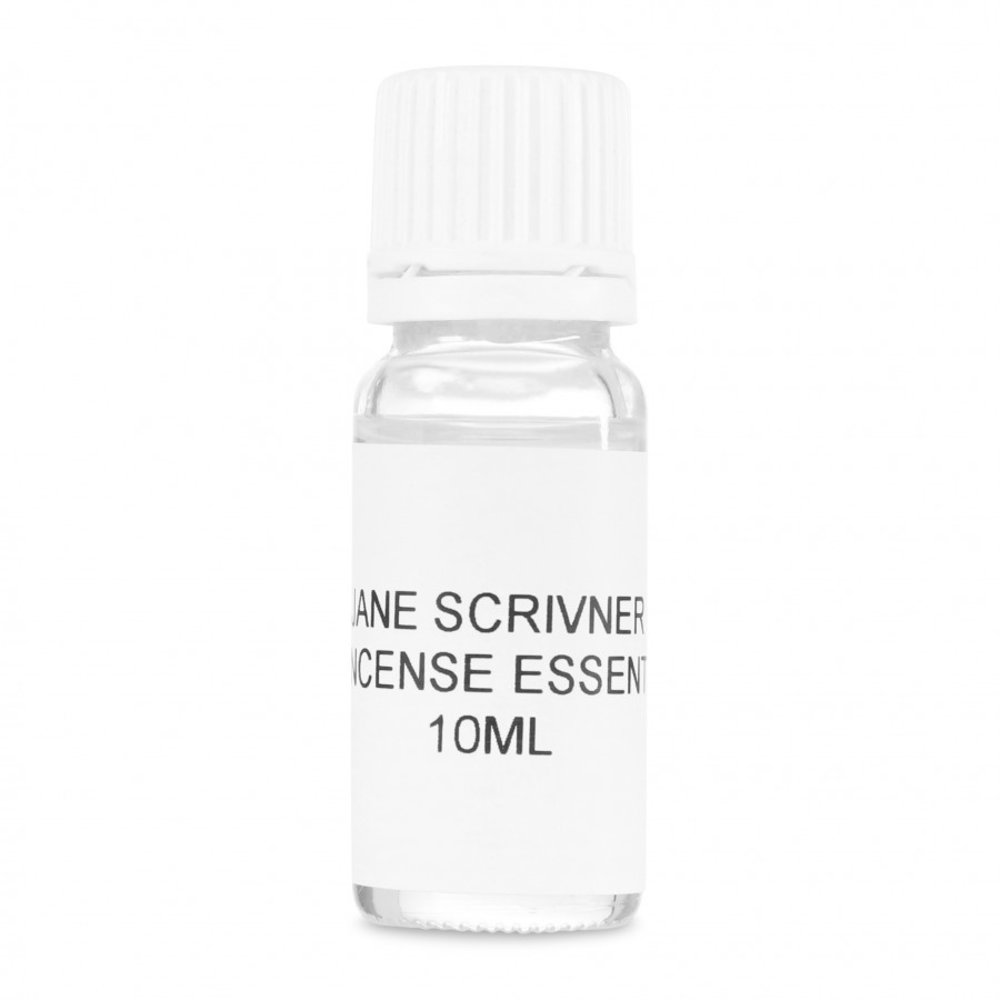Jane Scrivner Frankincense Essential Olie

Frankincense in history
Frankincense was already used in the Stone Age to embalm and wax bodies. The essential or essential oil is extracted from the resin of the frankincense tree or frankincense tree. The essential oil of frankincense was already used by the ancient Egyptians. The frankincense was brought from Eritrea. Today, it is still used because of its pleasant fragrance and medicinal properties. The Egyptians used to make bone fractures with frankincense resin, just as is done with plaster today. Because frankincense has anti-inflammatory properties, unlike plaster, this agent is probably preferable for bone fractures, but no modern scientific research has been done on this. In ancient Greece, frankincense was used in all kinds of temples. The ancient Romans burned huge amounts of frankincense. This sometimes even led to caravans of 10,000 camels from Arabia, where the frankincense tree grows naturally. Due to the over-harvesting of frankincense trees, many trees have been exterminated in South Arabia, which has partly led to desertification there. To give an example of how much frankinsence the Romans used: When Nero's wife died, at least two annual yields of frankincense were burned. After the collapse of the Roman Empire, the frankincense trade also collapsed. The Catholic Church has adopted the use of frankincense from the popular custom in Rome. In the Middle Ages, churches were provided with an incense scent, a practice that continues to this day.
General information frankinsence
Frankincense oil comes from different types of trees. Frankincense oil is extracted from various boswellia trees such as the Boswellia serrata in India, Boswellia carteri in East Africa and China and the Boswellia frereana in Somalia. The oil is also obtained from Boswellia sacra in Arab countries. The different trees produce oils that show slight variations but are broadly similar. Such differences are normal. Also, the same trees can produce different oils depending on the climate and soil type.
Frankincense oil
A study done in 2009 at the University of Oklahoma shows that frankincense oil distinguishes tumor cells from healthy cells. According to the researchers, frankincense oil appears to penetrate the tumor cell and induce rapid cell death. In other words, frankincense exhibits a cancer-fighting effect in a laboratory setting. The researchers also say that more research needs to be done with cancer cells and animal models before a definitive conclusion can be drawn. The research was done on bladder cancer cells. This cancer is not the only cancer that frankincense can fight. Here is a brief and incomplete overview of the cancers in which frankincense seems to work well.
Scientific research shows that frankincense works against a Meningioma, a cancerous tumor in the brain. American research from 1998 shows that frankincense works well against leukemia cancer cell lines. American research from 2000 shows that it has an anti-tumor effect in skin cancer. from 2002 shows that frankincense induces the elimination of liver cancer cells. German research from 2000 shows that frankincense is a promising drug for a glioma or a type of brain tumor. American research from 2007 shows that it can be a drug in brain metastasis, metastasis either a type of brain tumor that is common in people with breast cancer. Incidentally, these studies are carried out without exception with the aim of isolating a substance from frankincense and processing it into a pill. Therefore, there will be no follow-up research into the anti-cancer effect of frankincense, despite several promising indications that this oil can cure people of cancer.
Anti-inflammatory effect
Japanese researchers saw in 2009 that triterpene acids from frankincense oil are responsible for the anti-inflammatory effect. It was seen that there are 18 different triterpenes. Of these 18, 17 exhibit anti-inflammatory activity. The researchers note that frankincense oil is used in practice against arthritis.
Frankincense in Arthritis
Frankincense has been used for centuries in the traditional medicine of India for arthritis. Scientists from the United Kingdom showed in 2010 that frankincense substances do indeed stimulate collagen formation and counteract the inflammation that causes arthritis. One researcher single-handedly published a scientific report in 2008 on the scientifically examined effects of frankincense in inflammatory diseases such as asthma, arthritis and osteoarthritis and concluded that the scientific results are encouraging but not yet scientifically convincing. The 2010 study shows that frankincense may be a drug for arthritis. However, in 2014 a comparative study was published on the anti-inflammatory effects of ibuprofen, neem, licorice root, frankincense and guggul. The researchers concluded in their study that neem and licorice root have a much stronger effect than ibuprofen, frankincense and guggul. In other words, frankincense can relieve arthritis, but there are better natural remedies.
Frankincense against eczema and acne
Frankincense exhibits anti-inflammatory activity. A large number of medicinal plants do that. German researchers saw that extracts of rosemary, sage, frankincense and devil's claw have an anti-microbial effect, making them useful for acne and eczema, according to the researchers.
Frankincense in colitis
Frankincense has traditionally been used for digestive problems such as Crohn's disease and colitis, an inflammation of the colon. American research from 2009 shows that a semi-synthetic substance can be extracted from frankincense that prevents colitis. The research is intended to see whether it is possible to make a patentable medicine against colitis. But the results of this study also show that the natural remedy frankincense works well against colitis.



